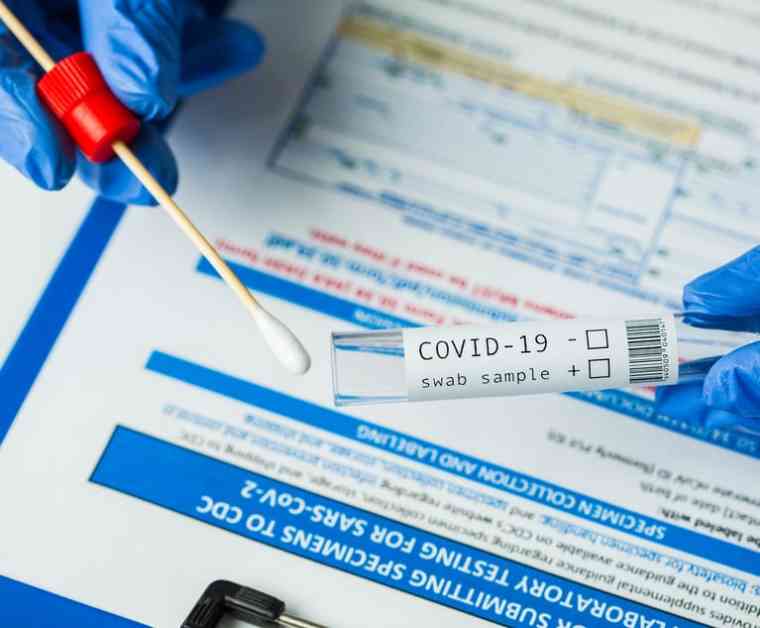Quinn Emanuel Urquhart & Sullivan, a prominent law firm, is representing a biotech manufacturer seeking $100 million in damages for a breach-of-contract suit filed in a Massachusetts state court. The lawsuit, filed on behalf of San Diego-based biotechnology company CorDx and its subsidiaries, Bao Ruiyan Biotech (Beijin) Co. and Core Technology Co., alleges that the Massachusetts-based seller of self-testing products, Genabio Diagnostics, and its executive leader, Weike Mo, failed to uphold their agreement. The dispute centers around a partnership in which Genabio Diagnostics granted CorDX exclusive manufacturer rights for its branded over-the-counter COVID-19 test kits. In exchange, CorDX was promised half of all net profits from the sale of the test kits and distribution rights for at least one-third of the tests, among other benefits.
Background of the Case
The legal battle between CorDX and Genabio Diagnostics dates back to an agreement reached between the two companies regarding the production and distribution of COVID-19 testing kits. CorDX, a biotech manufacturer specializing in diagnostic tools, was tasked with securing regulatory rights for Genabio’s branded test kits. In return, CorDX was promised a share of the profits and distribution rights for a significant portion of the tests. However, the relationship soured when Genabio Diagnostics allegedly reneged on its commitments, sparking the lawsuit seeking $100 million in damages.
Allegations Against Genabio Diagnostics
The complaint filed by Quinn Emanuel on behalf of CorDX accuses Genabio Diagnostics and its executive leader, Weike Mo, of breaching their contract with CorDX. The lawsuit alleges that Genabio failed to honor its agreement to provide CorDX with exclusive manufacturing rights for the COVID-19 test kits, as well as the promised share of profits and distribution rights. According to the complaint, CorDX invested significant resources and efforts in securing regulatory approvals for Genabio’s products, only to be left empty-handed when Genabio allegedly failed to uphold its end of the bargain.
Implications for the Biotech Industry
The legal dispute between CorDX and Genabio Diagnostics highlights the challenges and risks involved in partnerships within the biotech industry. As companies collaborate to develop and distribute innovative healthcare products, issues of contract enforcement and fair compensation become crucial factors in maintaining successful business relationships. The outcome of this case could set a precedent for how companies navigate partnerships in the biotech sector, emphasizing the importance of clear agreements and mutual trust in ensuring the success of collaborative efforts.
The lawsuit seeking $100 million in damages underscores the significant financial stakes involved in disputes between biotech companies. As the COVID-19 pandemic continues to drive demand for diagnostic testing solutions, the market for testing kits has become highly competitive. Companies like CorDX rely on partnerships with manufacturers and distributors to bring their products to market, making contract enforcement vital to their success. The outcome of this case could have far-reaching implications for how such partnerships are structured and enforced in the future.
Potential Resolutions and Legal Strategies
In response to the breach-of-contract suit filed by CorDX, Genabio Diagnostics and its executive leader, Weike Mo, are expected to mount a legal defense to challenge the allegations against them. The case is likely to involve complex legal arguments regarding the interpretation of the original agreement between the two companies and whether Genabio fulfilled its obligations under the contract. Both parties will present evidence and arguments to support their respective positions, with the ultimate goal of securing a favorable outcome in court.
Quinn Emanuel, known for its expertise in high-stakes litigation, will represent CorDX in pursuing the $100 million in damages sought in the lawsuit. The law firm’s legal team is expected to leverage its experience and resources to build a strong case on behalf of its client, presenting compelling arguments and evidence to support the allegations of breach of contract against Genabio Diagnostics. The outcome of the case will hinge on the strength of the legal arguments presented by both parties and the interpretation of the contract terms by the court.
In conclusion, the lawsuit filed by CorDX seeking $100 million in damages against Genabio Diagnostics and its executive leader underscores the importance of clear and enforceable agreements in the biotech industry. As companies collaborate to develop and distribute innovative healthcare products, issues of contract enforcement and fair compensation become critical factors in maintaining successful business relationships. The outcome of this case will have implications for how partnerships in the biotech sector are structured and enforced, highlighting the need for transparency and accountability in business dealings within the industry.















